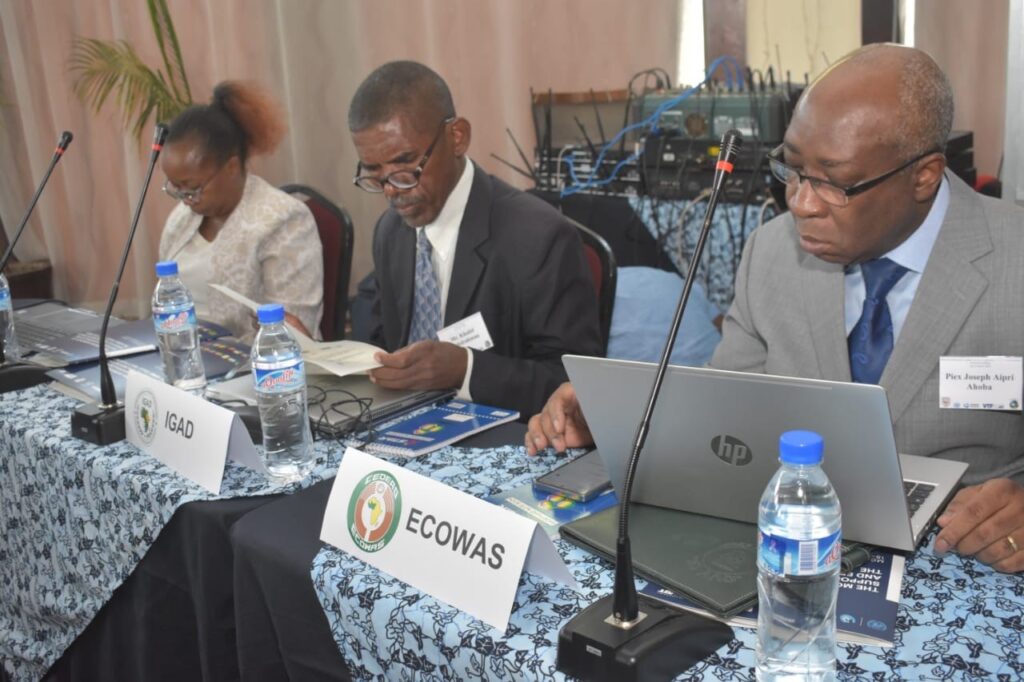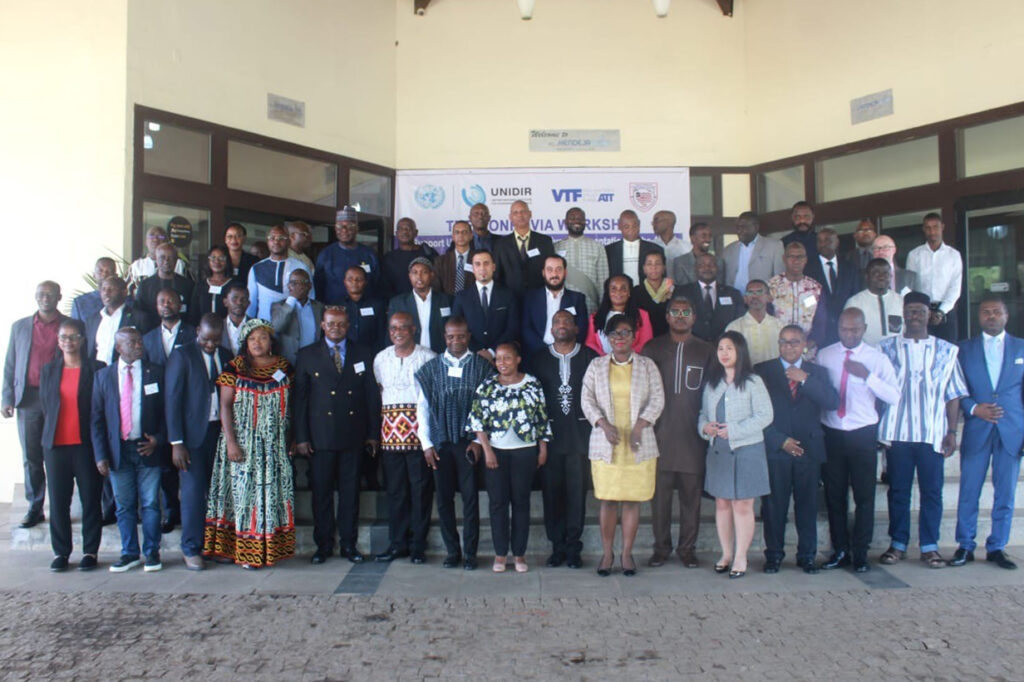From 18 to 21 March 2024, the Government of the Republic of Liberia, through the Liberia National Commission on Arms (LiNCA), in partnership with the United Nations Institute for Disarmament Research (UNIDIR), organized the first pan-African dialogue on the universalization and effective implementation of the Arms Trade Treaty (ATT). The four-day “Monrovia Workshop” was supported by the ATT Voluntary Trust Fund. It brought together over 50 representatives from 19 African States, including ATT States Parties, signatory, and non-signatory States, from different parts of the continent, as well as from the ATT Secretariat, the African Union (AU) and relevant sub-regional organizations.
The universalization and effective implementation of the ATT strengthen the regulation of the international trade in conventional arms, prevent their diversion to unauthorized end-users and for unauthorized end uses, and contribute to peace, security, and stability. Universalization and effective implementation of the ATT reduce the human cost of weapons, promote cooperative, transparent, and responsible international conventional arms trade, and build confidence among States Parties.
As of March 2024, 29 of the 113 ATT States Parties are African. Thus, 54% of African UN Member States are States Parties to the ATT, 20% are signatories, and 26% are neither States Parties nor signatories. Despite the significant, negative impact that the diversion and unregulated trade and proliferation of arms and ammunition have on peace, security, and stability across the African continent, almost half of African States have not yet joined the ATT. The workshop fostered a better understanding of the obstacles and challenges for such States and encouraged African ATT States Parties to provide their lessons learned for overcoming such challenges to become an ATT State Party and effectively implement the treaty.
Workshop objectives
In a keynote address, the representative of the National Security Advisor of the Republic of Liberia noted, “Liberia, as a post conflict nation has experienced firsthand the devastating effects of the unregulated trade in conventional arms resulting in the loss of thousands of lives and the destruction of practically our entire infrastructure – we had to start from zero to get to where we are now. We note that the regulation of conventional arms will contribute to global peace thereby reducing the untold sufferings brought on by the unregulated trade in conventional arms which can be easily diverted to cause untold human sufferings.”
The Head of UNIDIR’s Conventional Arms and Ammunition Programme, Dr. Paul Holtom, also noted in his opening remarks, “We’ve brought together African States Parties and signatories to the ATT, as well as States that are neither but which have shown interest in becoming a State Party to the treaty. Why? Because we think that on the eve of the 10th anniversary of the entry into force of the ATT, it is time for a constructive, open and honest exchange of African experiences and lessons learned on the ATT. Half of the States on this continent are Parties to the ATT – how was this achieved? What are the reasons and challenges that other African States are not parties? We hope that […] you will be able to share these challenges and also how to overcome them. And when a State Party, what is expected? What do you have to do? We will learn […] what is expected of an ATT State Party and what African States have done to fulfil the set obligations”.
During the pan-African dialogue, expert participants exchanged national experiences, lessons learned, and effective measures for overcoming challenges to universalization and effective implementation in Africa. These will be summarized in a forthcoming report, with a few key points already provided here.

Key outcomes
The first day of the workshop focused on ATT universalization challenges and lessons learned in Africa for becoming a State Party. Generally, workshop participants highlighted the importance of a favorable national legal framework, an inclusive approach towards the ratification process, political will, and sensitization of relevant stakeholders as among the key ingredients for ATT universalization in Africa.
The second day included exchanges of national experiences in domesticating the ATT and preventing the diversion of conventional arms. National presentations and discussions revealed that there is no “one size fits all” approach in domesticating the ATT. States have their own, unique approaches for ATT implementation, primarily due to different national priorities and/or circumstances when joining the ATT. Establishing a national control system, as well as counter-diversion measures as stipulated in Article 5 and 11 (respectively) of the Treaty were, however, considered of critical importance in all contexts.
Day three provided an opportunity to discuss challenges in meeting key ATT obligations, such as reporting obligations. While national experiences and practices in this regard differ, the exchanges underscored the importance of meeting reporting obligations, as a measure for promoting transparency in the international arms trade and building confidence among States. Participants also discussed challenges in paying assessed financial contributions, integrating gender-responsive approaches in ATT implementation efforts, and engaging actively in the ATT process. To overcome these challenges, the dialogue highlighted the importance of high-level sensitization and institutional capacity building.
The final day of the workshop benefitted from presentations by the ATT Secretariat, including on international cooperation and assistance mechanisms under the ATT, as well as representatives from the AU and African sub-regional organizations supporting ATT universalization and effective implementation.
In his closing remarks, the Head of the ATT Secretariat, Mr. Dumisani Dladla, noted “the Monrovia Workshop has defined what it has become: the first of its kind in the world. I am eager to report back to the ATT Stakeholders that we have achieved one of the greatest milestones in the ATT process”.
Next steps
UNIDIR, in cooperation with LiNCA, will summarize the key issues, lessons learned and effective measures for treaty universalization and effective implementation that were identified during the dialogue and expert interactions in Monrovia into a workshop summary report. The report and key findings from this project will be presented by the Republic of Liberia during the Tenth Conference of States Parties to the ATT in August 2024 in Geneva, Switzerland, in cooperation with UNIDIR. The report and this project will therefore benefit not only African States but also the wider ATT community.
